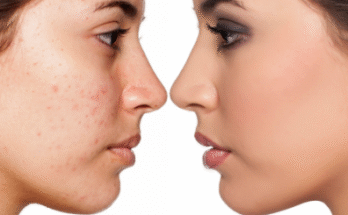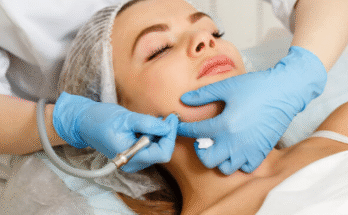Caring for acne-prone skin can feel like an ongoing challenge, but with a little consistency and the right approach, it is possible to nurture your complexion and reduce the stress that breakouts often bring. A skincare routine for acne-prone faces does not have to be complicated or filled with dozens of products. Instead, the key is to understand your skin, use gentle ingredients, and give yourself time to see results.
The first step in a routine is always cleansing. Acne-prone skin benefits from a gentle cleanser that removes dirt, excess oil, and impurities without stripping the skin of its natural moisture. Over-cleansing or using harsh soaps can make matters worse by irritating the skin and encouraging it to produce more oil. A mild foaming or gel-based cleanser, used twice daily, usually provides the right balance. Morning cleansing helps remove overnight buildup, while evening cleansing clears away the effects of pollution, sweat, and sunscreen.
After cleansing, toning can be helpful, but it is important to choose alcohol-free options. A soothing toner with calming ingredients like aloe vera, chamomile, or rose water can refresh the skin without causing dryness. For some, a toner that includes mild exfoliating acids such as salicylic acid or glycolic acid can support the process of unclogging pores, though it should be used gradually to avoid irritation.
Moisturizing is often misunderstood when it comes to acne-prone skin. Some people skip this step out of fear that moisturizer will worsen breakouts, but this often leads to more problems. When skin becomes too dry, it can trigger excess oil production, which contributes to clogged pores. The solution is to use lightweight, non-comedogenic moisturizers. Gel creams or oil-free formulas that contain ingredients like hyaluronic acid or ceramides are excellent for maintaining hydration while allowing the skin to breathe.
Sun protection is another essential part of a skincare routine. Even if you have acne, applying sunscreen daily is important. UV rays not only damage the skin but can also make acne marks and scars appear darker. Look for sunscreens labeled as non-comedogenic and oil-free. Many modern sunscreens are lightweight and designed specifically for sensitive or breakout-prone skin, so you do not have to worry about them clogging pores.
In addition to the daily basics, targeted treatments can be incorporated for managing breakouts. Products with benzoyl peroxide, salicylic acid, or tea tree extract can be useful when applied directly to blemishes. Consistency is key, but so is patience—results from acne treatments often take several weeks to become noticeable. It is also a good idea to introduce only one new product at a time, so you can see how your skin responds.
Beyond products, lifestyle choices also play a role in managing acne-prone skin. Washing pillowcases and face towels regularly, keeping makeup brushes clean, and avoiding excessive touching of the face can make a big difference. A balanced diet, adequate sleep, and stress management are also supportive to skin health, since stress and fatigue often worsen breakouts. Hydrating with enough water each day helps the skin maintain its natural balance as well.
Most importantly, remember that no skincare routine delivers results overnight. Acne can take time to calm, and every skin type is different. What works for one person may not work for another, so patience and persistence are essential. It is always a good idea to consult a dermatologist if breakouts become severe or persistent, as they can provide tailored treatments and advice that go beyond what over-the-counter products can achieve.
A skincare routine for acne-prone faces is ultimately about balance. By keeping the steps simple—cleanse, tone, moisturize, protect, and treat—you give your skin the care it deserves without overwhelming it. With steady effort and a gentle approach, clearer and calmer skin becomes a realistic goal, and you can feel more confident in your own natural glow.

